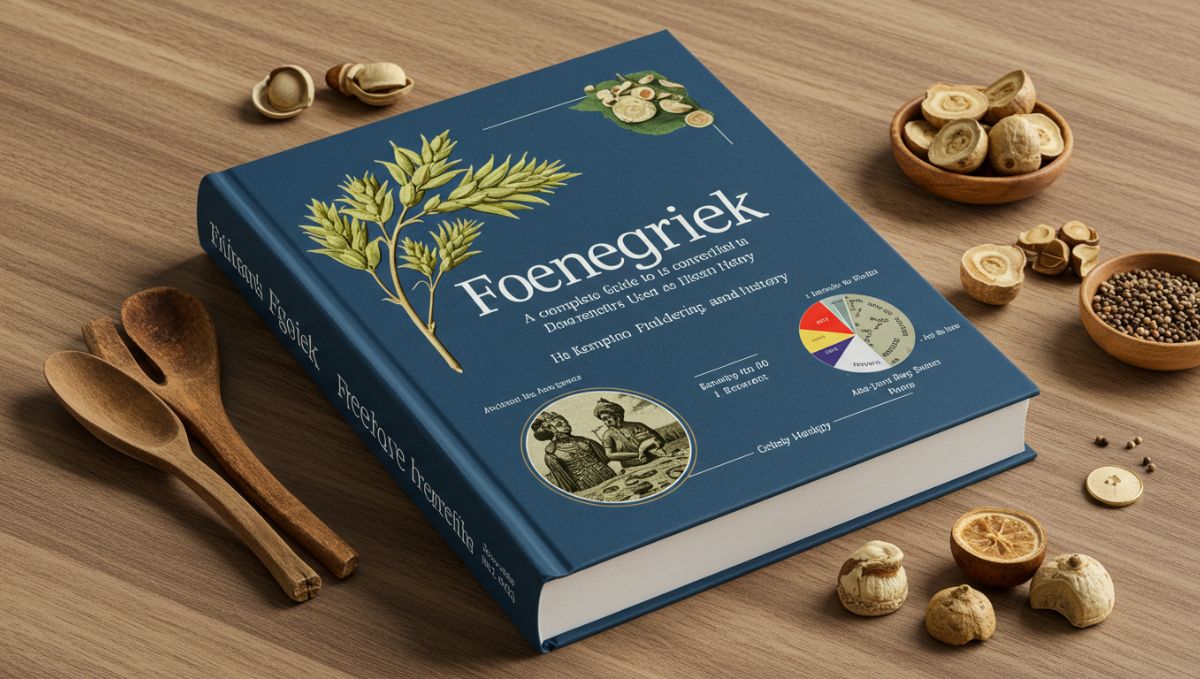Foenegriek, also known as fenugreek, is an ancient herb and spice that has been valued for centuries in both culinary and medicinal traditions. Originating from the Mediterranean and South Asia, foenegriek has found its place in kitchens, herbal medicine, and even modern dietary supplements. With a rich flavor profile and an impressive list of health benefits, foenegriek continues to attract attention worldwide.
In this comprehensive guide, we will explore the origins, nutritional values, health benefits, and practical uses of foenegriek. By the end, you’ll understand why this humble seed has remained a staple for so many cultures through history.
The History of Foenegriek
Foenegriek has been cultivated for thousands of years. Ancient Egyptians used it in embalming practices, while Greek and Roman civilizations valued it as both a spice and a natural remedy. In traditional Ayurvedic medicine, foenegriek has long been prescribed for digestive issues, lactation, and overall vitality.
Today, foenegriek is grown across India, North Africa, and parts of the Middle East. Its seeds and leaves are used in a variety of culinary dishes, while its extracts are increasingly popular in health supplements.
Nutritional Profile of Foenegriek
Foenegriek seeds are small, hard, and golden-brown, but don’t let their size fool you — they are packed with nutrients.
-
Proteins and Amino Acids: Essential for muscle growth and repair.
-
Fiber: Supports digestion and helps regulate blood sugar levels.
-
Vitamins: Particularly rich in vitamin B6 and folate.
-
Minerals: High in iron, magnesium, and manganese.
-
Plant Compounds: Contains saponins and flavonoids known for antioxidant properties.
The nutritional richness of foenegriek is one of the main reasons it has been valued for centuries in both food and medicine.
Health Benefits of Foenegriek
1. Supports Digestive Health
Foenegriek is rich in soluble fiber, which helps improve digestion and reduce constipation. Many traditional remedies use foenegriek tea or soaked seeds as a natural digestive aid.
2. Helps Regulate Blood Sugar
One of the most researched benefits of foenegriek is its ability to support healthy blood sugar levels. Compounds in foenegriek slow down the absorption of sugar in the stomach and stimulate insulin production.
3. Boosts Lactation in Mothers
For centuries, new mothers have turned to foenegriek as a natural galactagogue — a substance that helps increase breast milk production. Herbal teas and capsules containing foenegriek are still popular remedies for breastfeeding women today.
4. Supports Heart Health
Foene griek may help lower cholesterol levels and improve circulation. Its high fiber content contributes to maintaining healthy blood pressure and reducing the risk of cardiovascular diseases.
5. Anti-Inflammatory Properties
Foene griek contains powerful antioxidants and anti-inflammatory compounds. These help the body fight free radicals and reduce inflammation, which is linked to conditions such as arthritis.
6. Natural Remedy for Skin and Hair
Applied topically, foene griek paste or oil can soothe skin irritation, reduce acne, and strengthen hair. Traditional beauty practices in India still rely on foene griek as a natural cosmetic aid.
Culinary Uses of Foenegriek
The distinct, slightly bitter taste of foene griek makes it a versatile ingredient in many cuisines.
-
Seeds: Often roasted to enhance their flavor and used in spice blends such as curry powders and garam masala.
-
Leaves: Fresh foene griek leaves (methi) are commonly used in Indian cooking, added to curries, flatbreads, and soups.
-
Sprouts: Soaked foene griek seeds can be sprouted and added to salads for a nutritious crunch.
-
Herbal Tea: A soothing tea made from foene griek seeds is popular for digestion and relaxation.
In Middle Eastern and Mediterranean cooking, foene griek adds depth to bread and stew recipes. Its ability to blend well with other spices makes it an essential ingredient in global kitchens.
How to Use Foenegriek in Daily Life
-
Soaked Seeds: Drinking water infused with soaked foene griek seeds is a common health practice.
-
Powder Form: Ground foene griek powder can be added to smoothies, yogurt, or baked goods.
-
Capsules and Supplements: Widely available for those who want a convenient way to enjoy foene griek’s benefits.
-
Hair Masks and Skincare: Mixed with oils or yogurt, foene griek can be applied to hair and skin.
Consistency is key. Using foene griek regularly, in moderate amounts, is the best way to benefit from its properties.
Possible Side Effects and Precautions
While foenegriek is generally safe, there are a few things to keep in mind:
-
Consuming foenegriek in large amounts may cause mild digestive discomfort, such as gas or bloating.
-
Pregnant women should consult their doctor before taking foene griek supplements.
-
People with low blood sugar or those on diabetes medication should use foene griek carefully, as it may enhance the effects of the medicine.
As with any herbal remedy, balance and moderation are important.
Foenegriek in Modern Wellness Trends
In today’s health-conscious world, foene griek is experiencing a resurgence. From gym-goers using foene griek supplements to support muscle recovery, to wellness enthusiasts adding foene griek tea to their morning routines, this ancient herb has found new relevance.
The global herbal supplement industry has embraced foene griek, with capsules, powders, teas, and extracts available in health food stores worldwide. Its reputation as a natural, multipurpose herb continues to grow.
Conclusion
Foenegriek is far more than just a spice — it is a powerful herb with a rich history, nutritional depth, and numerous health benefits. From regulating blood sugar and supporting heart health to improving skin, hair, and digestion, foenegriek has something to offer for everyone.
Incorporating foene griek into your diet or wellness routine can be as simple as drinking a daily tea, adding the seeds to your meals, or using it in a natural beauty treatment. With its proven benefits and versatility, foene griek deserves a place in every household.
